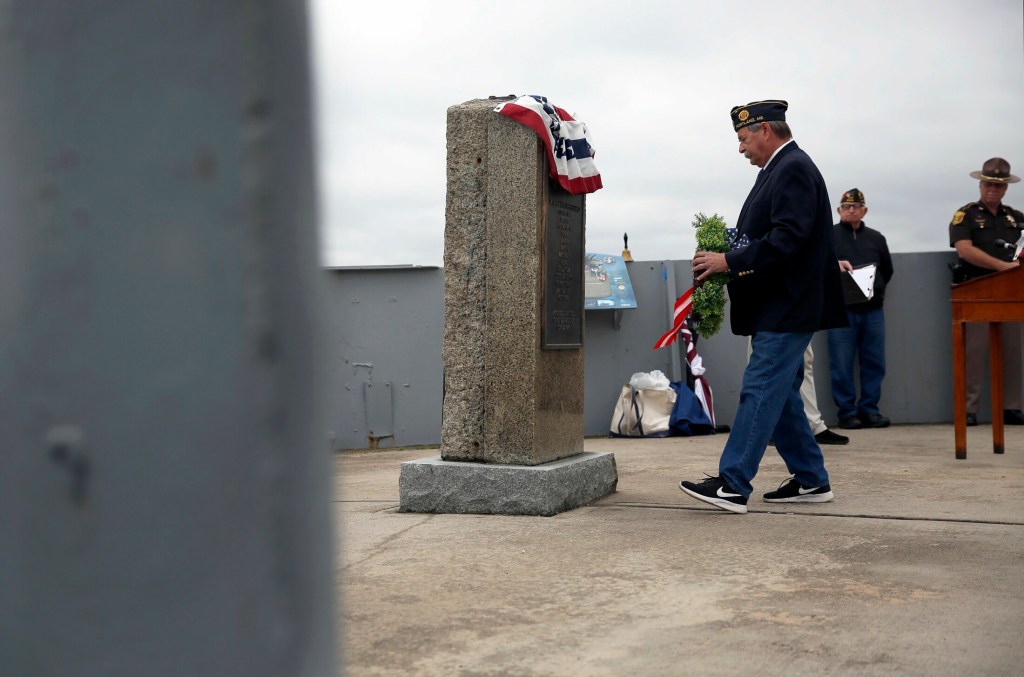This column is dedicated to all combat veterans, and is written to remember and honor those who died, those who returned, and those who came back with wounds, seen and unseen.
Memorial Day is a time of star-spangled pageantry, complete with the singing of the national anthem, praying for those who are deployed, and speeches honoring those who died. For the most part these speeches talk about the war dead as fallen, and say how they made the ultimate sacrifice, or gave their lives for their country and our freedoms.
These annual displays of patriotism conclude with solemn remarks that freedom is not free, that our freedoms are so precious because they allow us to live in the greatest nation in the world, and that our freedoms are worth the lives of those who made the ultimate sacrifice to protect them.
That is how millions of Americans experienced Memorial Day in the World War II era. Much of the sentiment expressed on Memorial Day about those who died defending America and our way of life was true then — but that was then and this is now. None of today’s Memorial Day speeches acknowledge the honorees died in yet another senseless, preventable, and unnecessary war that robbed families and the nation of productive lives.
A growing number of Vietnam, Afghanistan and Iraq combat veterans feel the same way and experience Memorial Day very differently. We wonder how the lives of our fellow soldiers helped defend our country and preserve our freedoms. We also wonder what freedoms we would have lost had we not invaded Vietnam, Afghanistan or Iraq. The sad answer is none. One historian commented that, given our history, if we hadn’t invaded Iraq we would have started a war somewhere else. It’s sad but true that combat veterans can identify what generation they belong to by what war in which they fought.
I am of the 1960s generation and am a Vietnam combat veteran. While serving with the 173rd Airborne Brigade in 1966-67, our unit experienced daily attacks by a small number of “invisible” Viet Cong guerillas who shot at us, killed or wounded a few, and then disappeared.
Tell me, how did an unlucky 18-year-old shot in the head during one of these frequent and random ambushes become a hero who gave his life for his country?
When a sustained firefight breaks out, you react immediately with a conditioned response. At first you hear everything, the gunfire, the noise, the yelling, and the screams of “Mama!” You are aware of the heat, the sweat in your eyes, the insects, the mud, the water, and then all of a sudden you feel nothing, nothing at all. You hear no sounds, feel no heat, and experience no emotions. You just react to what is in front of you, and then, just as quickly, you are aware of everything and all at once.
Tell me, is someone, dead or alive, a hero simply because they were shooting into the unbelievable chaos as fast as they could just to stay alive?
Under these circumstances, no one is fighting for their country, or for liberty and freedom either. They are simply fighting to stay alive. Beyond the enemy and yourself, nothing is more real than the guy in front of you, the guy behind you, and the guys on either side of you. All the rest is an abstraction.
Combat veterans live with the memories of their wartime experience every day, consciously or not. Some integrate back into society and work successfully for years. Then, at great surprise to themselves, their friends, and families, they find they just can’t do it anymore. Some work various jobs but never too long at any one place, while others never integrate at all.
So on the next Memorial Day, honor all of our combat veterans, not just the ones who were unlucky and died just trying to stay alive. Many combat veterans, from Vietnam to more recent wars, believe the best way to honor them is to acknowledge their service or death meant nothing. Doing so will help raise the ire of those whose loved ones died, suffer from PTSD, or self-medicate with alcohol or drugs. Maybe it will be enough to take action to ensure we don’t have any more combat veterans to honor.
I once went to a Memorial Day parade with a friend and his grandson. When his grandson asked why they were marching, I had to ask myself the same question.
Tom Waddell is president of the Maine Chapter of the Freedom from Religion Foundation. He can be reached at: president@ffrfmaine.org
Send questions/comments to the editors.



Success. Please wait for the page to reload. If the page does not reload within 5 seconds, please refresh the page.
Enter your email and password to access comments.
Hi, to comment on stories you must . This profile is in addition to your subscription and website login.
Already have a commenting profile? .
Invalid username/password.
Please check your email to confirm and complete your registration.
Only subscribers are eligible to post comments. Please subscribe or login first for digital access. Here’s why.
Use the form below to reset your password. When you've submitted your account email, we will send an email with a reset code.